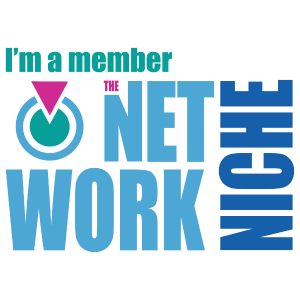Low On Energy? 3 Possible Causes To Explore
/Feeling low on energy is always difficult to cope with. You otherwise feel well and like yourself, but your energy reserves seem to be permanently depleted, making even mundane, simple tasks feel as if they require a Herculean effort. For most people, low energy is an acute issue that naturally resolves itself, but for some, the problem can become more long-term.
If you have been feeling low on energy and struggling to go through your normal daily routine for a while, there are three possible causes that you may want to investigate further, starting with…
Thyroid issues
The thyroid is a butterfly-shaped gland in your neck and, in some people, it can cause issues. Some people experience an overactive thyroid while, for others, the issue is underactivity, with the latter more likely to cause symptoms of low energy.
Thankfully, if you do have an underactive or overactive thyroid, management is relatively simple. Both conditions are well understood, there is a range of medications that can produce favorable results, and specialists such as the likes of RedRiver Health and Wellness Center can ensure you’re feeling back to your best in no time.
If you believe thyroid issues are the cause of your low energy, speak with your primary care physician for further advice.
Vitamin deficiencies
While any vitamin deficiency can cause low energy, deficiencies in vitamin B12 and vitamin D are usually the prime suspects. With most vitamins, a balanced diet is usually sufficient to ensure that our levels are where they should be. However, some people cannot absorb B12 effectively due to a condition called pernicious anemia, and vitamin D is primarily obtained through sunlight exposure rather than diet - so even someone eating a perfect, nutritious diet could still find themselves experiencing deficiencies.
As you might expect, the treatment for these deficiencies is supplementation. Vitamin D deficiencies tend to respond well to oral supplementation, but B12 can be trickier, especially when pernicious anemia is present - so always speak to your doctor to confirm the diagnosis and obtain further advice if you suspect your low energy is caused by a vitamin deficiency.
Stress
Some people experience stress as a jolt of energy, feeling as if their mind and body are constantly whirring. However, stress can cause exactly the opposite issue; a complete lack of energy that no amount of sleep, exercise, or good nutrition seems to be able to cure.
Unfortunately, stress is a difficult condition to manage, and many people experience numerous flares over the course of their lives. You may find that taking some time off from work, indulging in self-care, and other simple remedies can help alleviate the condition. However, if simple at-home treatments do not appear to be making a significant difference, do take the time to speak to your doctor for further advice.
In conclusion…
It’s important to note that low energy is not just a fact of life. If you’ve found that your get up and go has got up and gone, it’s well worth considering the possibilities above when seeking a resolution to this all-too-common health issue.
LETS GET SOCIAL









